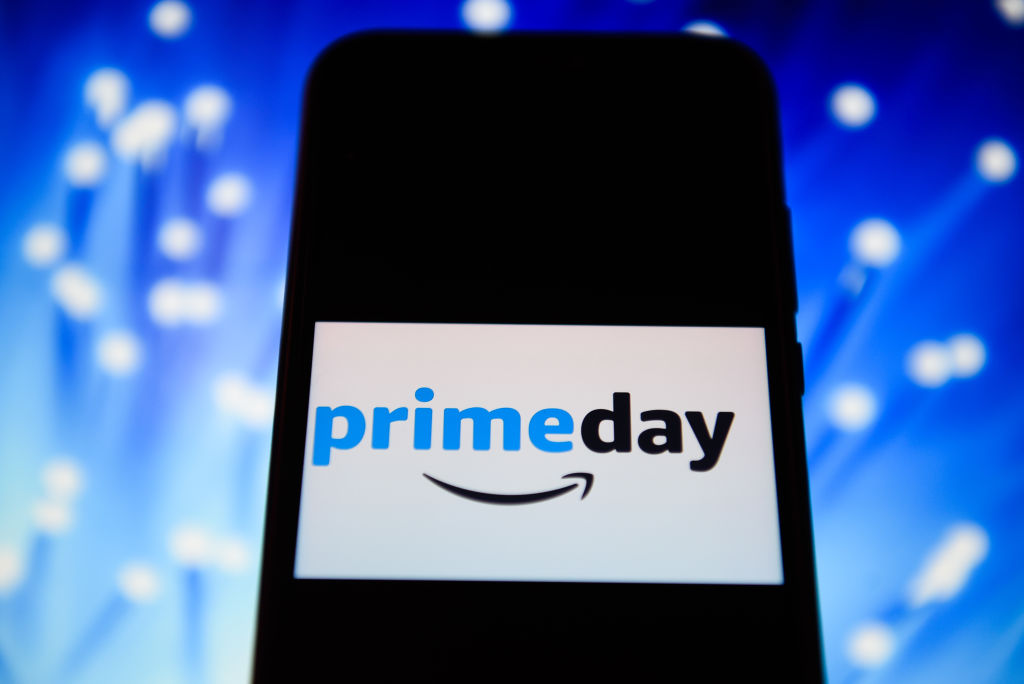5 Ways to Save on Video Games
Use these strategies to cut your spending on digital entertainment.

Profit and prosper with the best of Kiplinger's advice on investing, taxes, retirement, personal finance and much more. Delivered daily. Enter your email in the box and click Sign Me Up.
You are now subscribed
Your newsletter sign-up was successful
Want to add more newsletters?

Delivered daily
Kiplinger Today
Profit and prosper with the best of Kiplinger's advice on investing, taxes, retirement, personal finance and much more delivered daily. Smart money moves start here.

Sent five days a week
Kiplinger A Step Ahead
Get practical help to make better financial decisions in your everyday life, from spending to savings on top deals.

Delivered daily
Kiplinger Closing Bell
Get today's biggest financial and investing headlines delivered to your inbox every day the U.S. stock market is open.

Sent twice a week
Kiplinger Adviser Intel
Financial pros across the country share best practices and fresh tactics to preserve and grow your wealth.

Delivered weekly
Kiplinger Tax Tips
Trim your federal and state tax bills with practical tax-planning and tax-cutting strategies.

Sent twice a week
Kiplinger Retirement Tips
Your twice-a-week guide to planning and enjoying a financially secure and richly rewarding retirement

Sent bimonthly.
Kiplinger Adviser Angle
Insights for advisers, wealth managers and other financial professionals.

Sent twice a week
Kiplinger Investing Weekly
Your twice-a-week roundup of promising stocks, funds, companies and industries you should consider, ones you should avoid, and why.

Sent weekly for six weeks
Kiplinger Invest for Retirement
Your step-by-step six-part series on how to invest for retirement, from devising a successful strategy to exactly which investments to choose.
For console (Xbox, Playstation, Wii) and mobile (smart phones, tablets) gamers and their parents who empty their wallets to support them, it’s clear who’s really winning: The video game industry itself, which raked in more than $21 billion of consumers’ money in 2013. But smart shoppers can save big by practicing a little patience and comparing offers on new and used games. Consider these five strategies to cut your household spending on games:
1. Wait. New games almost always hit the shelves at about $60 a pop, but prices will drop. Andrew Schrage, co-owner of personal finance blog Money Crashers, recommends waiting at least 30 days before picking up a new release. Louis Ramirez, senior features writer at DealNews, recommends waiting even longer for the best deals: “Wait five months, and you can find many popular titles at $20 or less. After five months, you’re paying less than half price for your games.”
2. Get a deal on preorders. If you or your child can’t wait for a game, compare special offers on pre-orders. Look for deals that include gift cards or store credit. For instance, BestBuy.com, Amazon.com, and GameStop.com all charge $59.99 to pre-order the Batman Arkham Knight game, but members of the free My Best Buy program receive $10 in store credit when pre-ordering the game. Preorders also typically include free exclusive in-game content that can differ by merchant.
From just $107.88 $24.99 for Kiplinger Personal Finance
Become a smarter, better informed investor. Subscribe from just $107.88 $24.99, plus get up to 4 Special Issues

Sign up for Kiplinger’s Free Newsletters
Profit and prosper with the best of expert advice on investing, taxes, retirement, personal finance and more - straight to your e-mail.
Profit and prosper with the best of expert advice - straight to your e-mail.
3. Buy used games from Amazon, Craigslist, Glyde, or Half.com. “This is a particularly great tactic for gamers who don't need to have the latest games the minute they're out,” says DealNews’ Ramirez. “[These sites] offer better discounts than GameStop. For example, right now you can get a used copy of FIFA 14 for Xbox One for $33 on Glyde, versus $54 at GameStop for the same title.”
4. Rent video games from services such as Redbox and Gamefly. Renting is a cost-effective way to enjoy new games for a limited time and to test-drive games before buying them for as much as $60. Score a free rental every month from Redbox by texting “GAMETIME” to Redbox at 727272. Gamers can rent additional titles from Redbox for $2 a day. Gamefly operates a subscription model similar to Netflix, whereby you pay $15.95 a month to rent one game at a time. To be able to rent two games simultaneously, upgrade to the $22.95 subscription. “If you do not replay games in your collection, then you are better off renting than paying $60 per title for a game you’ll only play once,” says DealNews’ Ramirez. Gamefly often offers a free one-month trial.
5. Beware pesky fees. Casual mobile gamers may be tempted by game apps labeled as “free” in the app stores, but such games often include microtransactions -- easy, one-touch charges for in-game bonus content -- that can make the game more expensive than similar versions with a flat upfront cost. To avoid these fees, Money Crashers’ Schrage suggests disabling the iTunes or Google Play store. “You can also disable in-app purchases,” he says. “If those options are too restrictive, you can create a password that is needed before making a purchase.”
Likewise, online multiplayer games may offer “downloadable content for a fee” (DLC). Without these DLC packages, players may not be able to participate in some parts of the game. If you anticipate paying for DLC, consider ordering it up front. Games that feature periodic DLC typically offer a “season pass” at discounts of 10% or more.
Profit and prosper with the best of Kiplinger's advice on investing, taxes, retirement, personal finance and much more. Delivered daily. Enter your email in the box and click Sign Me Up.

-
 Look Out for These Gold Bar Scams as Prices Surge
Look Out for These Gold Bar Scams as Prices SurgeFraudsters impersonating government agents are convincing victims to convert savings into gold — and handing it over in courier scams costing Americans millions.
-
 How to Turn Your 401(k) Into A Real Estate Empire
How to Turn Your 401(k) Into A Real Estate EmpireTapping your 401(k) to purchase investment properties is risky, but it could deliver valuable rental income in your golden years.
-
 My First $1 Million: Retired Nuclear Plant Supervisor, 68
My First $1 Million: Retired Nuclear Plant Supervisor, 68Ever wonder how someone who's made a million dollars or more did it? Kiplinger's My First $1 Million series uncovers the answers.
-
 21 Last-Minute Gifts for Grandparents Day 2025 to Give Right Now
21 Last-Minute Gifts for Grandparents Day 2025 to Give Right NowHoliday Tips Last-minute gifting is never easy. But here are some ideas to celebrate Grandparents Day.
-
 Texas Sales Tax-Free Weekend 2025
Texas Sales Tax-Free Weekend 2025Tax Holiday Here's what you needed to know about the Texas sales tax holiday.
-
 Alabama Tax-Free Weekend 2025
Alabama Tax-Free Weekend 2025Tax Holiday Here’s everything you need to know about the 2025 back-to-school Alabama sales tax holiday.
-
 The Sweet 23: States Where Twix and Kit Kat Avoid the ‘Candy Tax’
The Sweet 23: States Where Twix and Kit Kat Avoid the ‘Candy Tax’State Taxes There’s something spooky this Halloween, and it’s not just the ghouls. Find out if your state’s sales tax takes a bite out of sweet savings.
-
 Florida Back-to-School Tax-Free Holiday 2025
Florida Back-to-School Tax-Free Holiday 2025Sales Taxes The new tax-free holiday in Florida brought month-long savings on computers, clothing and other school supplies.
-
 Five Reasons You Shouldn't Shop Amazon's Prime Big Deal Days
Five Reasons You Shouldn't Shop Amazon's Prime Big Deal DaysSmart Buying Are Amazon Prime Big Deal Days still a good deal? We'll break it down.
-
 Five Ways to Save on Vacation Rental Properties
Five Ways to Save on Vacation Rental PropertiesTravel Use these strategies to pay less for an apartment, condo or house when you travel.
-
 How to Avoid Annoying Hotel Fees: Per Person, Parking and More
How to Avoid Annoying Hotel Fees: Per Person, Parking and MoreTravel Here's how to avoid extra charges and make sure you don't get stuck paying for amenities that you don't use.